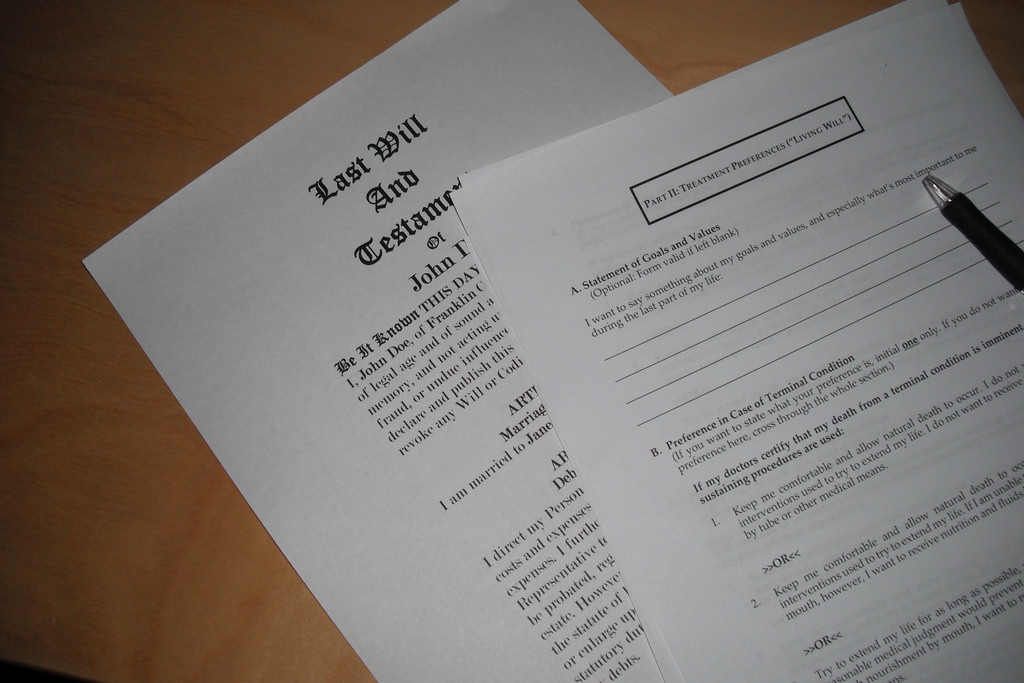When advising clients and drafting employment contracts with non-compete clauses, there are several things every lawyer should keep in mind. The general rule is courts will enforce non-compete clauses to the extent they are reasonably necessary to protect legitimate business interests.[1] In North Carolina, they must be (1) in writing and (2) signed by the parties.[2] The following seven tips will strengthen a typical non-compete agreement and increase its likelihood of enforceability in a court of law:
1. Know Your State’s Disclosure Requirements
Some, but not all, states require employers to disclose the existence of a non-compete clause in an employment contract when employees begin work. Employers in these states are prevented from presenting non-compete agreements to their employees after employment begins, unless they provide additional “valuable consideration” for the employee’s agreement.[3] Such consideration can come in the form of new employment itself or, in the case of current employees, new employment terms, such as a promotion or raise.[4] North Carolina is one such state. In practice, if one employee quits to form a competing company, his or her original employer cannot force its remaining employees to sign a non-compete agreement to prevent them from joining the competitor without providing additional consideration.
2. Employers Must Have a Legitimate Business Interest in the Non-Compete Clause
For a court to uphold a non-compete clause, it will consider whether the employer has a legitimate business interest in including a non-compete clause in its employment contracts. If the employer can show their business would be harmed by a former employee working for a close competitor, they are likely to prevail in such a dispute.
These clauses are commonly found in employment agreements for sales positions and other jobs that require specialized skills and training. For example, if a highly trained structural engineer leaves a bridge construction company for a competitor, the original company may lose immediate future business to that competitor, resulting in a loss of potential profits. In the field of sales, company representatives often have books of clients with whom they share a history. If the salesperson leaves for a competitor, the former employer may lose business because the customer may choose to stay with the representative rather than the company.
Non-compete clauses in the unskilled, low-wage labor fields are more difficult to enforce because unskilled laborers tend to be easier to replace and less likely to take business with them. In fact, several government officials have questioned the validity of non-compete clauses signed by delivery drivers for the sandwich company Jimmy John’s and warehouse workers for the online retailer Amazon.com.
3. Geographic Limitations Must Be Reasonable
Courts will almost certainly examine the reasonableness of the geographic limitations in any non-compete clause, though they are being implemented with less frequency. If the court determines the agreement is unfairly broad, they will not enforce the provision. There is no precise definition of “too broad,” but courts look to the following factors:
- Location of the business’ customer base;
- Size and scope of the restriction;
- Nature of the employee’s duty;
- Nature of the business;
- Area assigned to the employee;
- Area where the employee actually worked; and
- Area in which the business operates.[5]
The implementation of geographic limitations in non-compete agreements is waning as the global economy becomes more accessible. Salespeople are operating throughout much wider territories thanks to the advances in communications technologies and competitors are not necessarily limited to the rival down the street. Their competition now consists of similar companies regionally or even nationally. As such, many businesses opt to insert limitations on working for or with a specific list of competitors or known clients. This shift, however, is still subject to a reasonableness standard and courts will examine a client or competitor limitation with regards to whether there is a legitimate business interest involved.
4. Time Restrictions Must Be Reasonable
Courts will also look at the temporal restriction in non-compete clauses. As with geographic limitations, there is no bright line rule for determining the reasonableness of temporal restrictions, but there are general guidelines. North Carolina courts rarely uphold a restriction of five years, but anything two years is generally considered reasonable.[6] North Carolina courts have said “a time limitation contained in a covenant not to compete should remain valid and enforceable if its duration can be justified on the ground that it is reasonably necessary to prevent a loss of customers to the employee or a subsequent employer.”[7]
Attorneys should advise their clients to be reasonable when devising both geographic and temporal restrictions in their employment agreements.
5. Consider Possible Public Health and Safety Implications
It may be difficult to enforce a non-compete agreement if it would potentially endanger public health or safety. One field of employment where this rings especially true is medicine. It can be difficult to draft an enforceable non-compete clause regarding a highly-specialized physician, such as a pediatric nephrologist, compared to someone practicing general medicine.[8]
If you are tasked with drafting a non-compete agreement for an employee in the medical field, be sure to research your state’s laws and whether there are shortages of medical specialists in the area in which the agreement will be enforceable. Both urban and rural areas can be subject to a lack of medical specialists per capita, so it is important to know if your client’s region suffers from this type of scarcity.
6. Know Your State’s Stance on the Blue Pencil Doctrine
Some states have the authority to modify contracts via the “blue pencil doctrine.” The blue pencil doctrine provides that, if a non-compete clause in an employment contract is “unreasonably broad,” the Court can use its “blue pencil” to strike out the broad provisions from the contract. Some states will not reform or blue pencil a non-compete at all, while others allow judges to rewrite non-compete agreements to make them reasonable.[9]
The North Carolina Supreme Court reaffirmed the blue pencil doctrine in March of 2016 and ruled, even though it has the power to strike provisions, it does not have the power to re-write, re-word, or otherwise amend the agreement.[10] (To read more about that ruling, click here.) By way of hypothetical example, if a contract specifies that an employee cannot work in Mecklenburg, Gaston, Lincoln, and Wake Counties, a North Carolina court could modify the contract by striking the “Wake County” if it determines the employer has no legitimate business interest in prohibiting the former employee from working in Wake County, but does have such an interest in others.
Lawyers drafting non-compete clauses for employment agreements should consider all these nuances as they advise their clients. It is important to remember, since the clause will be held to a reasonableness standard, the court will weigh the surrounding facts and circumstances and a non-compete clause drafted for a position located in Uptown Charlotte may not be enforceable in the rural piedmont.
If you are an employer or business owner and considering implementing a non-compete clause in your employment contract, consulting with an experienced employment attorney to draft the contract can reduce your risk of liability and increase your chances of enforceability. For more information on employment law, please visit us at https://lindleylawoffice.com.
[1] Hartman v. W.H. Odell & Assocs., 117 N.C. App. 307, 316, 450 S.E.2d 912, 919 (1994).
[2] N.C. Gen. Stat. § 75-4 (2005).
[3] Copypro, Inc. v. Musgrove, 754 S.E.2d 188, 191-92 (N.C. Ct. App. 2014).
[4] Id.
[5] Rendi L. Mann-Stadt, Hayley R. Wells, Restrictions on Employees’ Post-Employment Work in North Carolina: The Balancing of Interests, Ward and Smith Blog (June 25, 2014), http://www.wardandsmith.com/articles/north-carolina-non-compete-agreement-restrictions.
[6] Id.
[7] Manpower of Guilford Cty. v. Hedgecock, 42 N.C. App. 515, 521, 257 S.E.2d 109, 114 (1979).
[8] The Shifting Tide of Physician Non-Competition Agreements, Frost Brown Todd Health Law News (Jan. 2005), http://www.frostbrowntodd.com/resources-1132.html.
[9] Kenneth J. Vanco, A Quick State-by-State Guide on the Blue-Pencil Rule, Legal Developments in Non-Competition Agreements, (Jan. 8, 2009, 12:09 PM), http://www.non-competes.com/2009/01/quick-state-by-state-guide-on-blue.html.
[10] Beverage Sys. Of the Carolinas v. Assoc. Beverage Repair, N.C. Sup. Ct., No. 316A14 (March 18, 2016).




